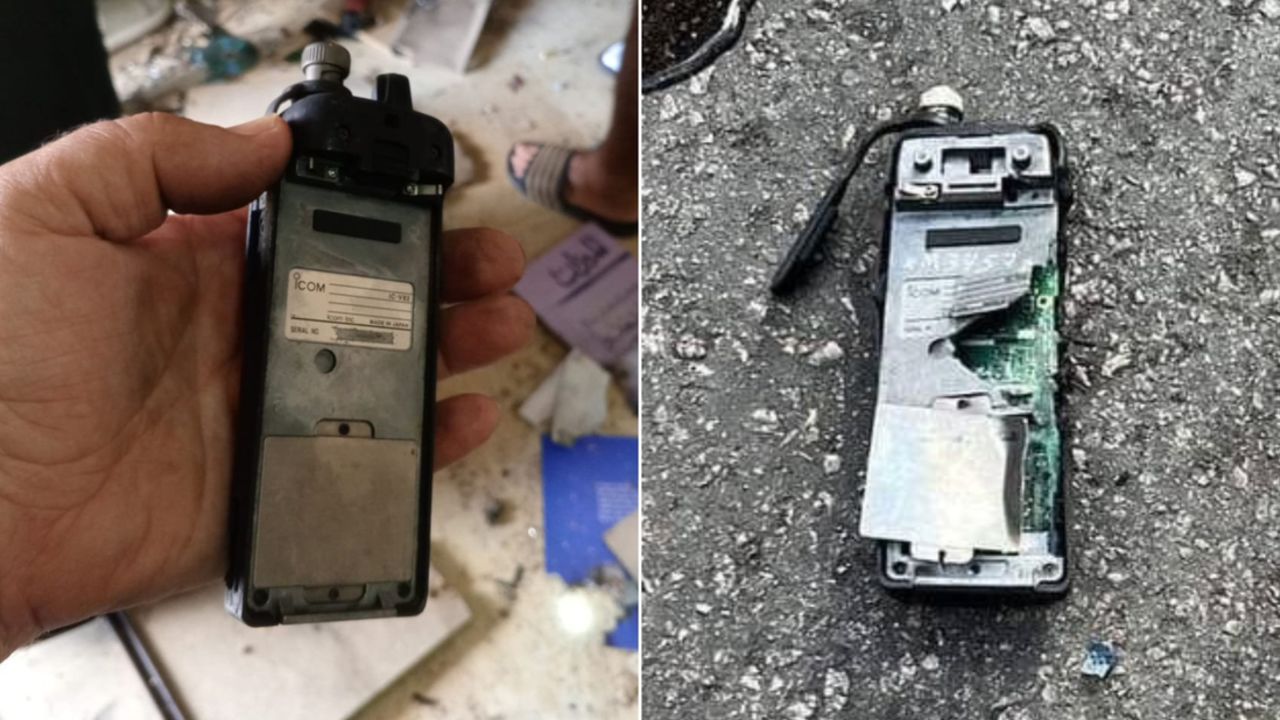
Source: CNN
Shayan Hassan Jamy
On September 17 and 18, 2024, thousands of pagers, walkie-talkies, and other electronic devices exploded across Lebanon, killing 42 people and injuring almost 3,500. Once the dust settled, reports from both The New York Times and CNN confirmed that the explosions were the result of an Israeli operation targeting Hezbollah members. These devastating attacks raised several questions about supply-chain warfare, the weaponization of electronic devices, and the increasing threat of backdoor technologies.
Israel reportedly carried out the attacks by tampering with the equipment before Hezbollah acquired it. Israel hid explosives inside the pagers and also inserted a switch to detonate them remotely. Therefore, the primary question is this: How was Israel able to infiltrate Hezbollah’s supply-chain with such ease? The pagers used by Hezbollah had the logo of a Taiwanese manufacturer, Gold Apollo. The said Taiwanese company, however, had no record of shipping pagers to Lebanon. Rather, the pagers used in the attack were made by a European distributor, the Hungary-based BAC, who had acquired the rights to use Gold Apollo’s brand. Gold Apollo released a statement, saying “the design and manufacturing of the products are solely the responsibility of BAC.” However, the rabbit hole goes even deeper than this. The New York Times reported that BAC was a front, set up by Israel for the sole purpose of conducting this operation.
These brazen and monumental episodes are yet another instance of cyber-kinetic warfare entering into a destructive domain. Such attacks have been the pattern in the Middle East since 2010, when Israel and the U.S. used the Stuxnet malware to cause significant destruction of the centrifuges at Iran’s Natanz nuclear facility. All this suggests that these attacks will become more frequent, significantly affecting the future of warfare.
In order to address these threats, it is important for states to reevaluate their supply-chain security and reduce any vulnerabilities. States like Iraq, Turkiye, Russia, and others have already called for investigations into the Lebanon tech explosions and begun to assess the safety of their own electronic devices. This backdoor technology dilemma will likely spread around the world.
Not only will Western states be wary of Chinese technology, as was the case when the U.S. and the UK banned Huawei, but developing states will now also be more cautious when using Western technology. In the future, the global community could be divided into two camps: importers of Western technology and those of Chinese technology. Following the semiconductor-related export controls placed by both the U.S. and China last year, the “chip war” and growing supply-chain warfare could potentially lead to a global technological bifurcation.
The walkie-talkies, too, were reportedly tampered with by Israel and then delivered to Hezbollah. Icom, the Japanese company that made the walkie-talkies, said it had stopped producing the specific model used in the explosions 10 years ago. Lebanon’s communications ministry said the walkie-talkies were “not supplied by a recognised agent, were not officially licenced, and had not been vetted by the security services.” Therefore, while the operation was a success for Israel, it was a major security lapse from Hezbollah as it failed to adequately vet the equipment for Israeli backdoor technologies. Both the pagers and walkie-talkies had been purchased by Hezbollah only months before the explosions took place.
Also, it is pertinent to address the serious violation of international humanitarian law, which was carried out during these attacks. According to a UN human rights expert, Israel’s operation could constitute a war crime, given that the attacks had the intention of spreading terror among civilians, and that it was impossible to verify as to who possessed the devices at the time of the explosions. The success of this operation will set a worrying precedent, which other state and non-state actors will likely follow. More worryingly, supply-chain warfare and targeting of electronic devices will likely become a major aspect of future wars.
Another question that comes to mind is this: Why would Israel turn to supply-chain warfare? Hours after the explosions, Israeli Prime Minister, Benjamin Netanyahu, expanded Israel’s war aims, including the return of displaced citizens near its border with Lebanon. This meant it was likely planning a military operation against that country. The tech explosions served as a form of psychological warfare, to disorient and confuse the enemy before the invasion. Israel has since launched a ground invasion into southern Lebanon, and conducted airstrikes across the country, killing hundreds and injuring thousands, including Hezbollah’s longtime chief, Hassan Nasrallah.
Ultimately, the Lebanon tech explosions will call into question every state’s supply-chain security. Therefore, states must be vigilant about where they get both their hardware and software from while ensuring that no backdoor technologies have been planted by their adversaries. The ideal approach would be to focus on indigenous development of technology and diversification of the supply-chain.
Shayan Hassan Jamy is a Researcher at the Centre for Aerospace and Security Studies (CASS), Lahore.
The views expressed in this article are the author’s and do not necessarily reflect those of Pakistan Politico.




